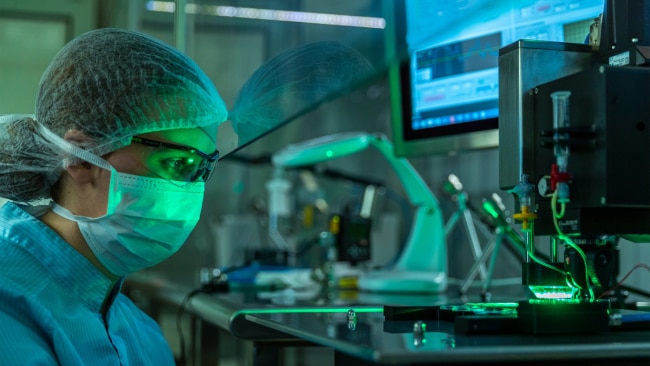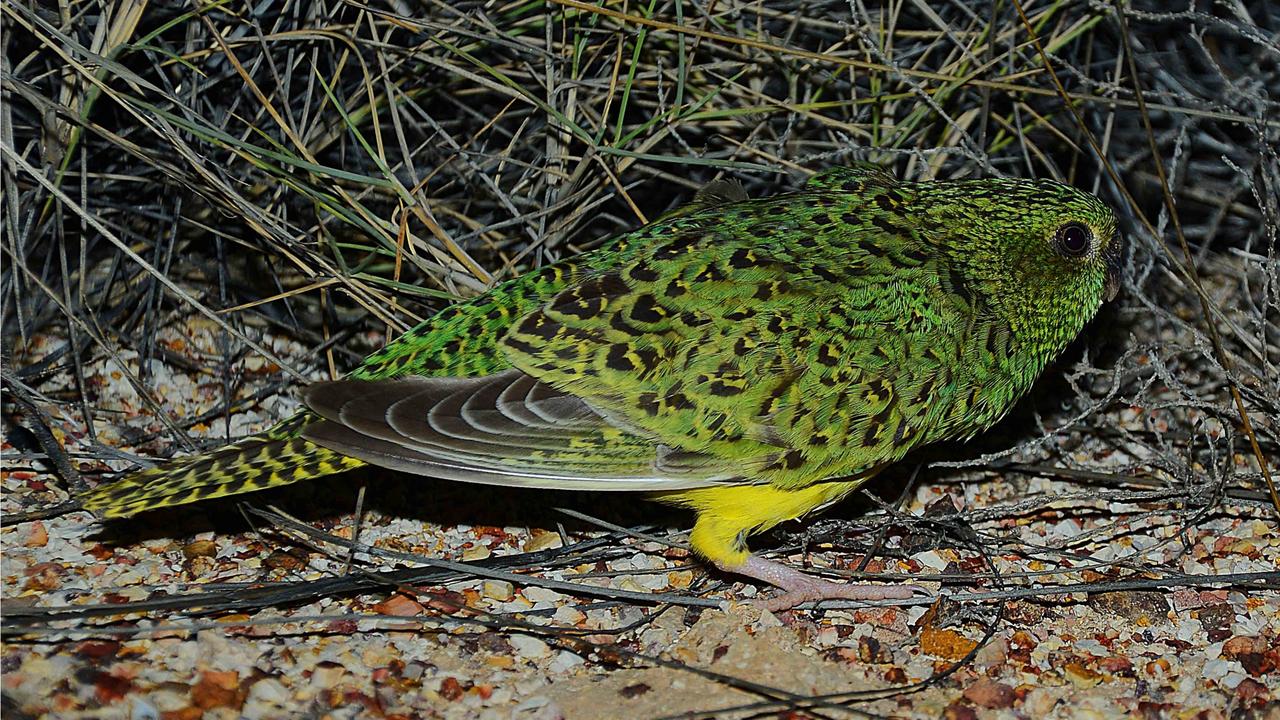Barack Obama sends 3000 US troops to tackle West Africa Ebola outbreak
BARACK Obama has urged the world to “act fast” to stop West Africa’s Ebola epidemic before “hundreds of thousands” are infected.

BARACK Obama has called on the world to “act fast” to stop West Africa’s Ebola epidemic before “hundreds of thousands” are infected, deploying 3000 troops to combat the health crisis.
The Australian government has also committed a further $7 million to support the international effort in West Africa, comprising $2.5m for the World Health Organisation, $2.5m for Medecins Sans Frontieres, and $2m to support British medical aid in Sierra Leone.
The US President, urging a global expanded effort to fight the deadly disease, said: “Here’s the hard truth: In West Africa, Ebola is now an epidemic of the likes that we have not seen before.
“It’s spiralling out of control. It is getting worse. It’s spreading faster and exponentially. Today, thousands of people in West Africa are infected. That number could rapidly grow to tens of thousands.
“And if the outbreak is not stopped now, we could be looking at hundreds of thousands of people infected with profound political and economic and security implications for all of us.
“So this is an epidemic that is not just a threat to regional security, it’s a potential threat to global security if these countries break down, if their economies break down, if people panic.” The Ebola epidemic has killed more than 2400 people in Guinea, Liberia, Nigeria and Sierra Leone.
Tony Abbott said Australia had now dedicated $8m to the epidemic and could send more.
“What you see from us is an increasing commitment of funds as this situation worsens and that’s what we’d expect from a country such as Australia which always wants to be the best possible global citizen,” the Prime Minister said in Arnhem Land.
“This is a crisis, and I suspect that over time depending on how this develops, we could give more.”
Foreign Minister Julie Bishop warned Australians against travelling to West Africa.
“While Ebola is a very serious disease, there have been no cases of Ebola in Australia and the risk of an outbreak in Australia remains low. Australia has robust border protection systems and our infection control measures in hospitals are first rate,” she said.
Mr Obama announced the stepped-up effort today during a visit to the federal Centres for Disease Control and Prevention in Atlanta following appeals for a greater US effort to confront the crisis and alarm that the Ebola virus could spread and even mutate into a more easily transmitted disease.
The President said the CDC was “one of the crown jewels” in fighting disease and that the outbreak had provided a timely opportunity for him to thank everyone there for extraordinary efforts. Mr Obama was joined at the meeting by National Security Adviser Susan Rice and Health and Human Services Secretary Sylvia Mathews Burwell.
White House press secretary Josh Earnest said the 3000 troops would not provide direct care to Ebola patients. A substantial number will be stationed at an intermediate base in Senegal, Mr Earnest said, with others at locations in Liberia where they will provide logistic, training, engineering and other support.
The World Health Organisation warned that the number of Ebola cases in West Africa could start doubling every three weeks and that the crisis could end up costing nearly $1 billion to contain. Joanne Liu, president of Médecins Sans Frontières, said the global response was falling short. “The window of opportunity to contain this outbreak is closing,” Ms Liu told a meeting at the United Nations in Geneva.
Nearly 5000 people have become ill from Ebola in Liberia, Sierra Leone, Guinea, Nigeria and Senegal since it was first recognised in March. WHO says it anticipates that figure could rise to more than 20,000. At least 2400 people have died, with Liberia bearing the brunt.
With the addition of military personnel, administration officials said that the new US initiatives aim to:
- Train as many as 500 health care workers a week;
- Erect 17 heath care facilities in Liberia of 100 beds each;
- Set up a joint command headquartered in Monrovia, Liberia, to coordinate between U.S. and international relief efforts;
- Provide home health care kits to hundreds of thousands of households, including 50,000 that the US Agency for International Development will deliver to Liberia this week;
- Carry out a home- and community-based campaign to train local populations on how to handle exposed patients.
Meanwhile, a Senate panel held an afternoon hearing on the crisis. Expected to testify were Dr Anthony Fauci, director of the National Institute of Allergy and Infectious Diseases, and Dr Kent Brantly, an American physician who contracted Ebola while working in Liberia but recovered after treatment with an experimental drug. Mr Obama met with Dr Brantly at the White House on Tuesday before departing for Atlanta.
Obama administration officials said money for the stepped-up effort to combat the disease would come from $500 million in overseas contingency operations, such as the war in Afghanistan, that the Pentagon already has asked Congress to redirect to carry out humanitarian efforts in Iraq and in West Africa. Officials said it would take about two weeks to get US forces on the ground.
Ebola is spread through direct contact with the bodily fluids of sick patients, making doctors and nurses especially vulnerable to contracting the virus, which has no vaccine or approved treatment.
The US effort will include medics and corpsmen for treatment and training, engineers to help erect the treatment facilities and specialists in logistics to assist in patient transportation.
Mr Obama’s trip came a day after the United States also demanded a stepped-up international response to the outbreak. The US ambassador to the United Nations, Samantha Power, called for an emergency meeting of the UN Security Council on Thursday, warning that the potential risk of the virus could “set the countries of West Africa back a generation.”
Ms Power said the meeting would mark a rare occasion when the Security Council, which is responsible for threats to international peace and security, addresses a public health crisis.
UN Secretary-General Ban Ki-moon was expected to brief the council along with World Health Organisation chief Dr Margaret Chan and Dr. David Nabarro, the recently named UN co-ordinator to tackle the disease, as well as representatives from the affected countries.
The US has spent more than $100 million responding to the outbreak and has offered to operate treatment centres for patients.
ADDITIONAL REPORTING: AP


